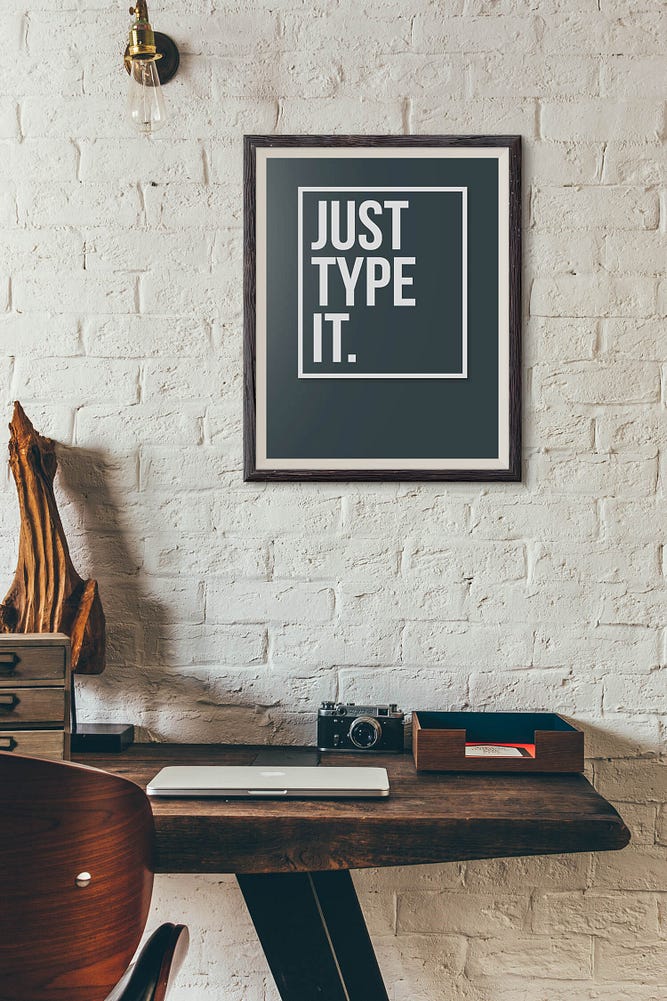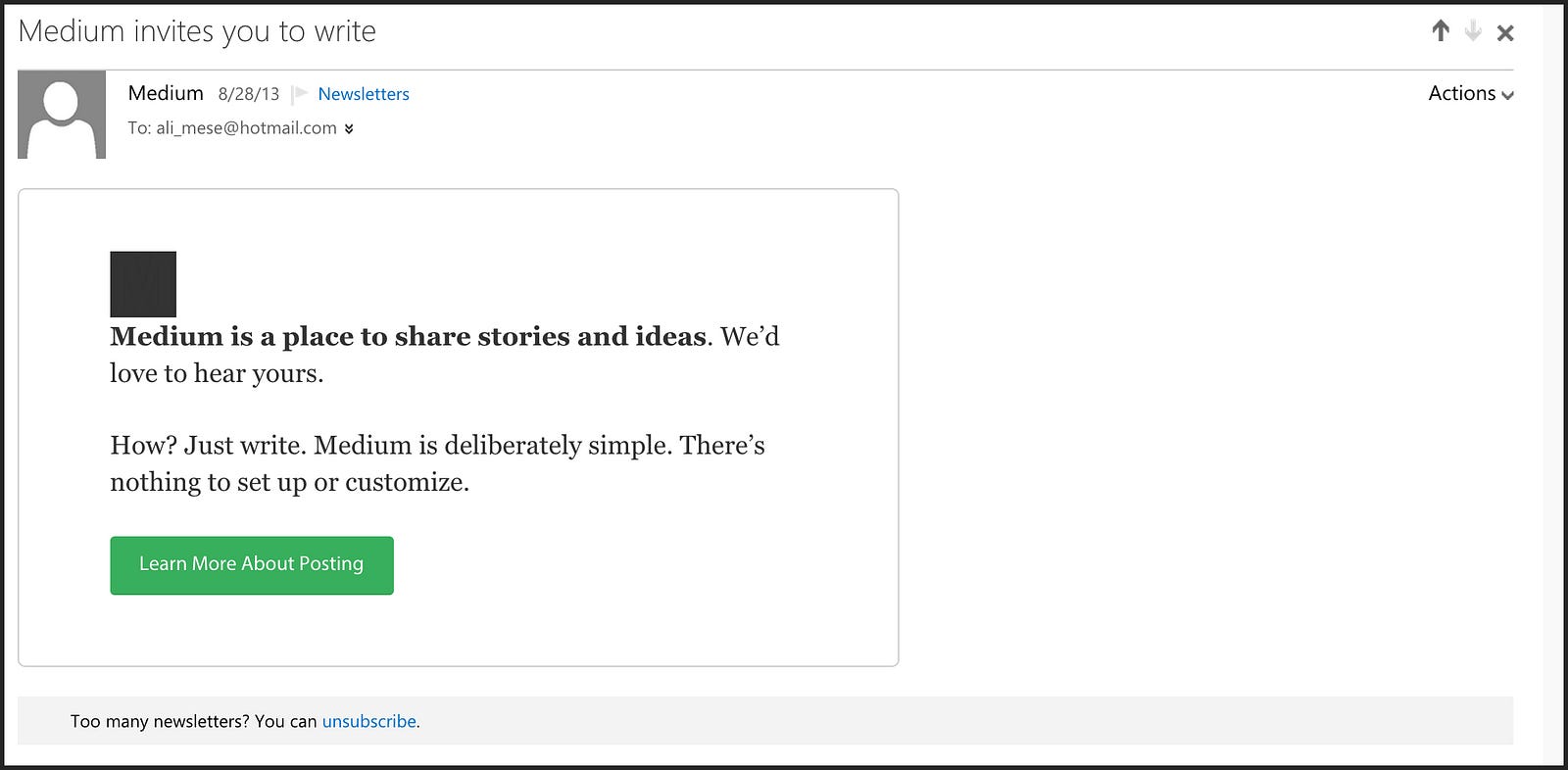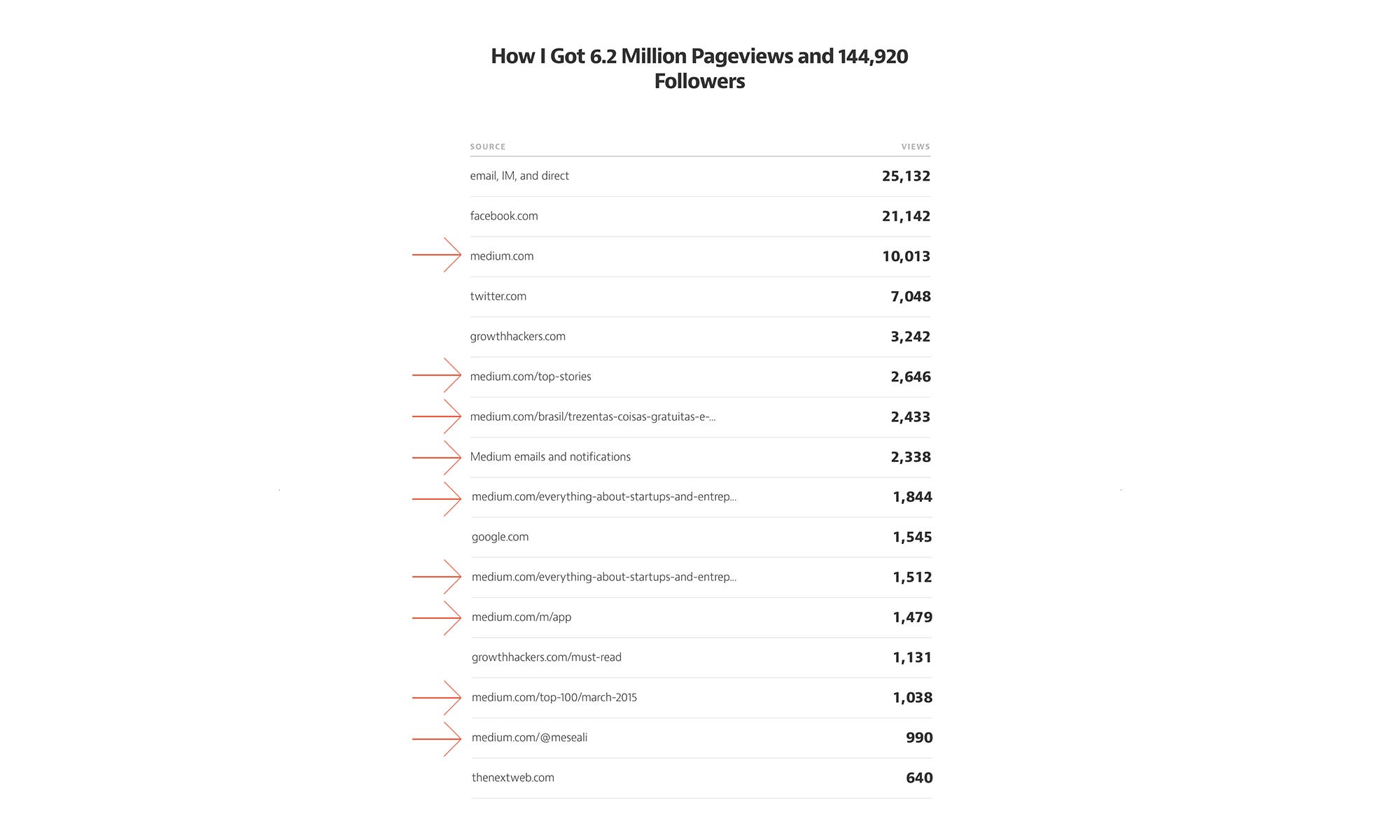“Look, I am not telling you not to write on Medium, OK? You can give it a try. I am just saying you’ll regret it big time for not having blogged on your website. Do you know why?”
Without waiting for my answer, he opened an article on his computer and started reading the following sections out loud:
“It’s called digital sharecropping, and it means you’re building your business on someone else’s land.”
“In this case, on Medium’s land,” he added, “Medium is your landlord and it’s the same as creating content on Facebook or Google!” He was getting louder again:
“Anyone can create content on sites like Facebook, but that content effectively belongs to Facebook. The more content we create for free, the more valuable Facebook becomes. We do the work, they reap the profit. The landlord has all the control. If he decides to get rid of you, you lose your livelihood.”
I had been trying to blog for months but every time I tried to blog, I ended up doing everything except blogging.
Indeed, my blogging journey started a few years ago after discovering all those famous blogs that help you to learn how to blog. I read thousands of articles from the likes of Quicksprout, Copyblogger, Hubspot, Moz, Michael Hyatt, Kissmetrics, Chris Brogan, Problogger, etc.

I set up my WordPress website and purchased shared hosting on Hostgator. And I spent days and nights customising my WordPress plugins. I even went on to god knows how many blogs and left comments without even reading any of their articles. I made sure, however, to come back and check whether the moderator had approved my comment so that I would get the backlink.
I did everything…
…everything except blogging. I didn’t do ‘the thing,’ but I did everything related to the thing in order to postpone doing the thing.
When I finally got frustrated and reached my limit, I started writing my first article and when it was time, I wrote my first headline:
“5 Ridiculously Easy Ways to Increase Twitter Followers by 278%”
With only 112 Twitter followers at the time, I was trying to give Twitter tips to my non-existent audience with a title idea I stole from one of those top blogs. All those top blogs I used to read were teaching me how to be a great blogger and to find my unique voice. Instead, I was copying those blogs and selling other people all the tactics I’d learned from them.
I noticed I wasn’t alone, however. We were thousands of people trying to sell each other all the same things we learned from the same top blogs. This was the thing Alberto insisted on not understanding.
We were doing everything except blogging.
Blogging Journey
On August 25, 2013, a few months before meeting Alberto in Rome on that warm spring day, I discovered Medium.
And three days later, I received the following email from the platform:


The last sentence of Medium’s email seemed to know what I was suffering the most from:
“There’s nothing to set up or customize.”
It was a call to stop wasting time customizing the look of my website, buying hosting or trying to optimize a blog that didn’t even have a single article on it.
On April 11, 2014, I typed my first story on Medium and finally hit the “publish” button.
Starting a Blog on Your Own Website vs Writing on Medium
I shared some of my learnings and my Medium stats in my last article, How I Got 6.2 Million Pageviews and 144,920 Followers. Since then, a lot of people have emailed to ask why I chose Medium, so I wanted to share more insights.
Here are few things you might have to give up if you choose Medium:
- Medium branding dominates: Though the platform is beautiful, the Medium look and feel might overshadow the customized branding you could otherwise have on your own website. You will hear people saying,“Oh, I read that article but I didn’t know it was you. All Medium articles look the same to me.”
- Not everybody understands how the site works and apparently, not everyone puts in the effort to. On a recent trip to Australia, I was asked by a designer from a leading creative agency, “OK, but how do you get read on Medium? Is it like Product Hunt, where people upvote you?”
- However, your readership depends heavily on how much people understand the site. To get read by other people or to end up on ‘Top Stories,’ you need your readers to click on the ‘Recommend’ button. Even a great writer whose audience doesn’t understand the site could get no traction.
- Content discovery is still not at its best.
- Simplified stats: If your blog will rely on revenue streams like advertising, you will need to track detailed analytics and Medium’s stats page won’t give all you want.
- SEO: Obviously, on a platform you don’t own, along with control you also lose some SEO benefits.
I drafted this article a few months ago and back then the above list of disadvantages of writing on Medium was much longer.
However, I have to admit that Medium is listening and improving a lot. For instance, you couldn’t own your custom domain before, but you are now reading this article on my own domain.
Here are few reasons why I write on Medium instead of on my own website:
WHY MEDIUM?
1. We love to call ourselves…
…entrepreneurs, but when it comes to getting things done, we often confuse taking action with making too many plans and perfecting things. Before writing even a single article, we make plans for a blog that nobody may ever read. Medium is a great platform to quickly test your writing skills instead of wasting time perfecting the look of your website.
Medium is the MVP of your blog.
2. While people on Google are…
…in a search mood or on Facebook in a browsing mood, people on Medium are in a reading mood. Some people are so much in the reading mood that it shocks you to see them commenting on, highlighting, or recommending all of your articles in a row.
3. People look for ‘answers’…
…on Quora, ‘pictures’ on Instagram, ‘videos’ on YouTube, and ‘slides’ on Slideshare. With (mobile) centralization conquering the world, Medium is on its way to becoming the all-in-one equivalent for ‘articles’.
4. Medium is growing…
…and so is the traffic you get from the site. The percentage of referral traffic my Medium articles receive from Medium.com and the Medium app has gone up from 2.3 percent to 26.8 percent over the last year. I was already late to the Twitter train and now seems to be the best time to jump on the Medium one. (For instance, below are the top referrers of my last Medium article.)


5. People here…
…have great taste, and it puts a weird pressure on you to double-check your writings and make sure what you publish is your personal best. This helps you improve the quality of your articles. (Don’t worry, you will always think your articles suck.)
6. And when you write for…
…those people instead of machines, you end up dominating search engine results. Maybe the best SEO is when you don’t know it’s SEO. (P.S., apparently the http://medium.com domain is gaining authority in the eyes of Google. As a result, your articles obviously benefit from that juice. Also, with more reach comes more social shares.)
7. Then there are those other benefits:
- Built-in audience: There are guys like me who spend hours on Medium and constantly look for stuff to read. I just finished reading three articles from three strangers: one was tagged with ‘entrepreneur’ (a tag I am following on Medium), the other was recommended by a friend, and the last one was published in a publication I follow.
- Whatever you write looks beautiful. Medium’s distraction-free editor is ‘what you see is what you get’ (WYSIWYG) so you don’t have to click on the ‘Preview’ button to see how your article will look when you publish it.
- Medium servers work for you for free and load even your image-heavy articles within a second. (Priceless when your article goes viral.)
Obviously, choosing whether to write on your own platform or to blog on Medium is not a zero-sum game. Both have their awesome and sucky sides.
You can always give Medium a try or you can also publish your essays first on your own website and cross-post them on Medium after few days.
No matter where you blog, just type. And Medium is a great place to test your writing skills on a built-in audience before making plans for a blog nobody may ever read.
No comments:
Post a Comment